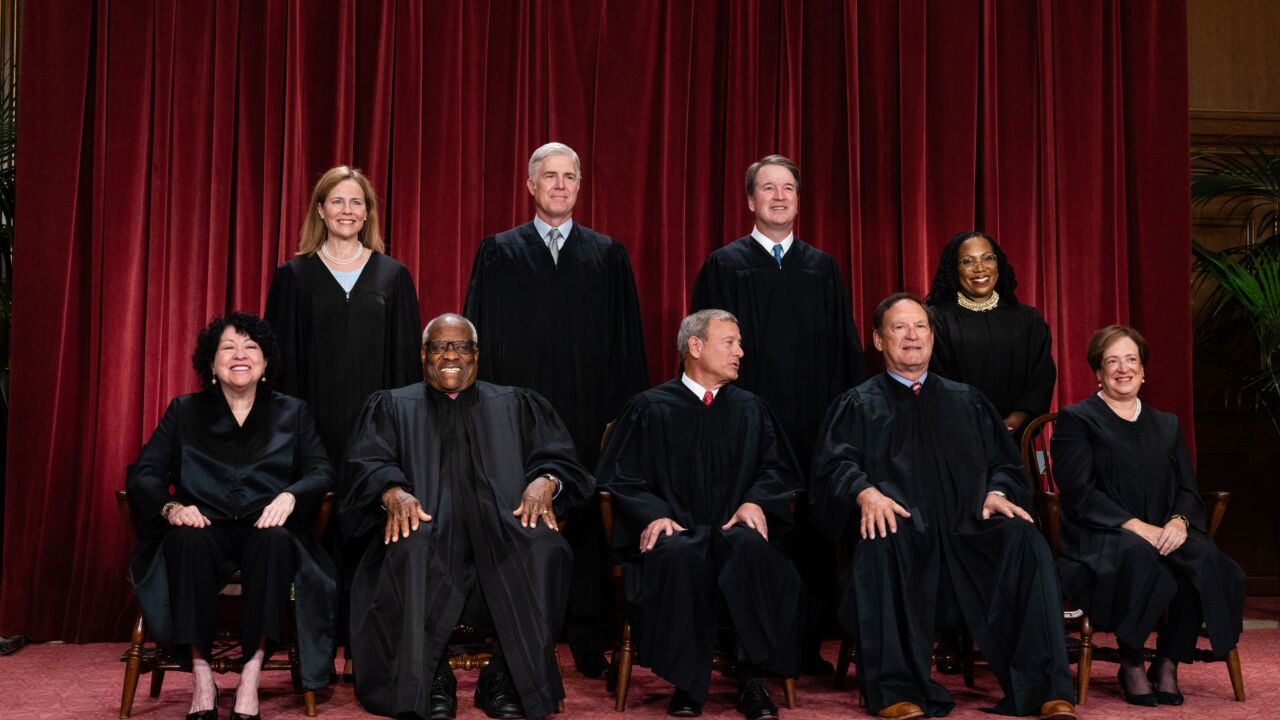Since arriving at the Consumer Financial Protection Bureau last October, Director Rohit Chopra has been busy. Under his leadership, the CFPB has issued nearly 60 press releases as well as multiple reports and blog posts, many critical of the banking industry I represent. Behind the public relations blizzard and the CFPB’s campaign-like demonization of financial services lurks a troubling strategy: An unelected federal regulator is seeking to shortcut the traditional regulatory process, opting instead to use over-the-top rhetoric and unfair, deceptive and abusive methods to trumpet a politicized enforcement binge.
It’s a power grab that should concern every American, especially members of Congress who created the bureau more than a decade ago and will have the opportunity this week to question the director when he testifies on Capitol Hill.
Director Chopra knows the agency and its limitations well, which is why his plan is being carefully choreographed. He started with a national media campaign to brand almost any fee associated with banking — even those closely regulated by the CFPB — as “junk fees.” The campaign is little more than a PR effort designed to confuse the public about the well-disclosed fees they currently pay and to undercut an industry simply following the regulator’s own rules.
Here are the facts.
The fees the CFPB continues to highlight, including late fees and overdraft fees, are already required to be “clearly and conspicuously” disclosed under existing rules, and banks are watched carefully for compliance. That could explain why the bureau keeps referring to surprise “resort fees” and “ticket fees” as examples of junk fees. Banks of course don’t charge resort or ticket fees, and the CFPB has no authority over them.
The current disclosure requirements for banks were also consumer tested by the CFPB and the Federal Reserve at substantial effort and expense to ensure people understand them. One other important fact the CFPB doesn’t want you to know: Some of the fees in question are already capped by the government.
Americans must be outraged by surprise bank fees to trigger this kind of campaign, right?
Not exactly.
A recent national survey by Morning Consult found that that 83% of U.S. adults believe their bank is transparent about disclosing fees, and 62% believe that account fees charged by their bank are reasonable.
Among other things, bank fees help ensure that institutions have the best technology and personnel to fight cyber fraud and keep your accounts safe, convenient and easy to use. Those services matter to people, and they help explain why that same Morning Consult survey found that nine in 10 consumers are “satisfied” or “very satisfied” with their primary bank.
The banking sector is also not alone in charging fees for service. The federal government charges a $130 fee to get a passport. The IRS charges you a penalty for not paying your taxes on time. Are those “junk fees” as well? Consumers understand that a fee for a service or a fee to incentivize on-time payment is reasonable.
Given the facts it is hard to understand why Director Chopra launched his fee-fishing expedition until you consider what followed. The bureau expanded its definition of discrimination, creating a whole new category of legal liability for providers of financial services.
The CFPB already enforces the Equal Credit Opportunity Act that makes it illegal to discriminate in lending, but in March the bureau released an "update” to a section of its examination manual that vastly expanded the reach of its anti-discrimination enforcement power beyond that assigned by Congress.
To be clear, discrimination has no place in financial services, and banks already must comply with a range of anti-discrimination laws including ECOA, but the CFPB’s updated manual means financial service providers could be accused of illegal discrimination for their activities across the bank even if there is no evidence of any intent to discriminate.
Here’s an example of how this could play out. Many banks require checking account holders to maintain a minimum balance to ensure that the bank has ample deposits to make loans and to encourage customers to manage their finances prudently. Customers whose balances fall below the minimum often pay a fee. Under the updated manual, the bank could be accused of discrimination if it turns out that members of a protected group are less likely to meet the monthly minimum balance and must pay the fee each month.
Of course, novel legal theories often get tested in court, and I suspect this one will join that list, but Director Chopra is trying to cover that as well. In February, the bureau quietly released revised rules of practice for administrative adjudication. It sounds like harmless bureaucratic paper pushing, but in reality these changes allow Director Chopra to make decisions in enforcement actions that should be made by an impartial administrative law judge. He would play both prosecutor and judge in those cases. As several trade associations including ABA recently noted in a letter to the CFPB, the revised rules would result in an unprecedented concentration of power that “risks depriving defendants of due process.” Again, these revised rules were buried without fanfare in the bowels of the Federal Register and took effect without any opportunity for public comment in advance.
I have had the honor of representing banks of all sizes before four CFPB directors. While we have often disagreed on policy, sometimes significantly so, I found that prior bureau leaders worked to understand markets in an open manner and sought feedback from all stakeholders. That is no longer happening at the CFPB, and I suspect many Americans will be troubled to learn that an unelected federal regulator is making major policy changes without public input, even if he claims to be doing so in consumers’ best interest. I also think Americans believe businesses should be treated fairly by their government.
Certainly, every member of Congress should be concerned. This coming week lawmakers in both the Senate and the House will have a chance to ask Director Chopra about his recent actions and the legal authority behind them. Let’s hope they don’t miss this opportunity to challenge a regulator going rogue.







